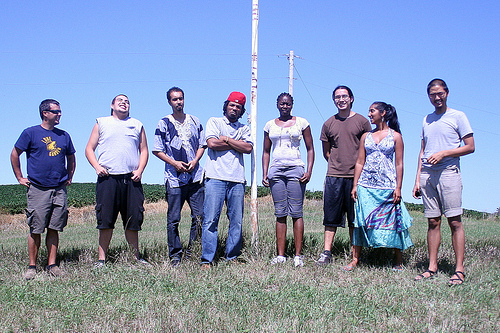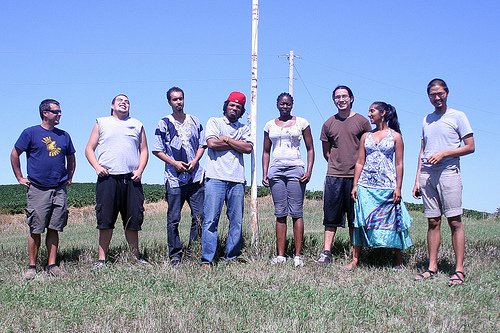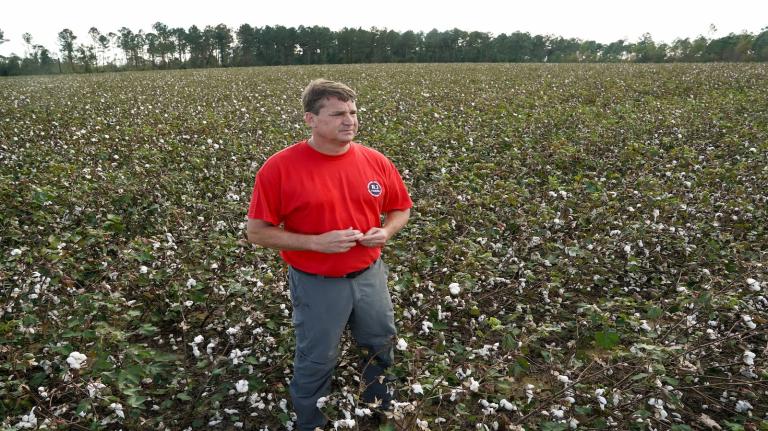 The Live Real fellows and staff on the road last month on the first leg of the Food and Freedom Ride.Photo: Hai VoNothing says commitment to a cause like 11 young adults willing to spend several weeks crammed into a 15-passenger van traveling across the country. Dubbed “from the hood to the heartland,” the Food and Freedom Ride is a 2,000-mile voyage from Birmingham, Ala., to Detroit, Mich., intended to spread awareness about food justice issues in the U.S.
The Live Real fellows and staff on the road last month on the first leg of the Food and Freedom Ride.Photo: Hai VoNothing says commitment to a cause like 11 young adults willing to spend several weeks crammed into a 15-passenger van traveling across the country. Dubbed “from the hood to the heartland,” the Food and Freedom Ride is a 2,000-mile voyage from Birmingham, Ala., to Detroit, Mich., intended to spread awareness about food justice issues in the U.S.
The riders are part of a new initiative called Live Real. Director Anim Steel said they’re aiming to tackle a variety of challenges they see in the food system: some communities have limited access to affordable, healthy food, and many of those who work in the food system make low wages.
Live Real aims to make what Steel calls “real food” the new norm. “Real food we define as food that’s good for people who eat it, good for the environment, and good for those who are producing it, the farmers and farm workers,” he said.
The Live Real crew is traveling from community to community, meeting with farmers, meat processing plant employees, Indian reservations, community garden supporters, and communities already working to combat food deserts and health issues related to obesity. Steel said they hope to connect and inspire these communities to know that others out there are bringing creative solutions to these problems.
The Food and Freedom Ride journey began in Birmingham on the 50th anniversary of the original freedom rides, which protested racial segregation on interstate travel.
“They were bold, they were visionary, they were standing up for what they knew was right,” said Navina Khanna, field director for Live Real. “So we’re honoring and commemorating the anniversary of that, while simultaneously trying to show that the fight for social justice isn’t over, that it’s very real in the food system.”
Khanna said five out of eight of the worst-paying jobs in the country are in the food system. In Iowa, they’ve talked with communities employed largely by meat processing plants to learn about some of their challenges. The group also visited several farms working to get fresh produce into local communities, including Onion Creek Farm in Ames, Iowa. In White Cloud, Kan., they met with people from the Indian nation at the George W. Ogden Sr. Community Center.
When she started to talk about the challenges so many communities face, Khanna’s voice was etched with tears. She said children born this decade have a one in three chance of developing diabetes, and children of color have a one in two chance.
“There’s also a statistic put out by [the Centers for Disease Control] that said this is first generation to have shorter life expectancies than their parents,” Khanna said. “What we see in all communities we’ve been through is that you can literally draw a line between where people have access to real food and where they don’t. It runs along the lines of race, class, education level … all of those things.”
Editor’s note: Learn about the second (California) leg of the Live Real trip in the video below:
A version of this article ran on The Harvest Public Media blog.



